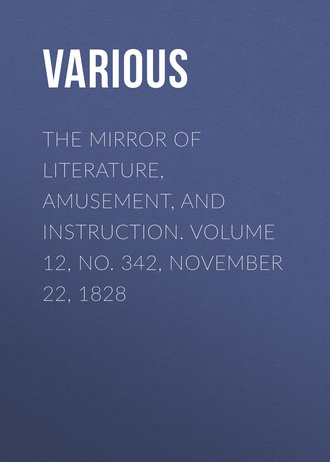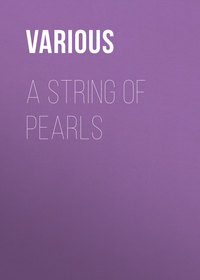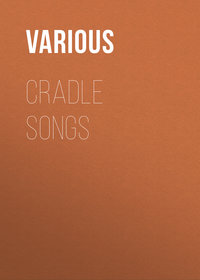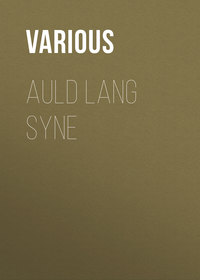
The Mirror of Literature, Amusement, and Instruction. Volume 12, No. 342, November 22, 1828
With these words the soldier turned on his side, under shelter of a grave, and as his libations had been rather copious during the day, it was not long before he gave audible testimony that the dread of supernatural visitants had had no effect in disturbing the even current of his fancy. Although Larry had not opposed the proposition of his kinsman, yet he felt by no means at ease. He put in practice all the usually recommended nostrums for keeping away unpleasant thoughts:—all would not do. "If it was a common, dacent, quite (quiet,) well-behaved churchyard a'self," thought Larry, half-aloud—"but when 'tis a place like this forsaken ould berrin'-ground, which is noted for villiany"—"For what, Larry?" said a gentleman, stepping out of a niche which contained the only statue time had spared. It was the figure of Saint Colman, to whom the church was dedicated. Larry had been looking at the figure, as it shone forth in ebon and ivory in the light and shadow of the now high-careering moon, "For what, Larry," said the gentleman,—"for what do you say the churchyard is noted?" "For nothing at all, plase your honour," replied Larry, "except the height of gentility." The stranger was about four feet high, dressed in what might be called flowing garments,—if, in spite of their form, their rigidity did not deprive them of all claim to such an appellation. He wore an antique mitre upon his head; his hands were folded upon his breast; and over his right shoulder rested a pastoral crook. There was a solemn expression in his countenance, and his eye might truly be called stony. His beard could not be well said to wave upon his bosom; but it lay upon it in ample profusion, stiffer than that of a Jew on a frosty morning after mist. In short, as Larry soon discovered to his horror, on looking up at the niche, it was no other than Saint Colman himself, who had stept forth, indignant (in all probability) at the stigma cast by the watcher of the dead on the churchyard of which his Saintship was patron. He smiled with a grisly solemnity—just such a smile as you might imagine would play round the lips of a milestone (if it had any,) at the recantation so quickly volunteered by Larry. "Well," said he, "Lawrence Sweeney"—"How well the old rogue," thought Larry, "knows my name!" "Since you profess yourself such an admirer of the merits of the churchyard of Inistubber, get up and follow me, till I show you the civilities of the place—for I am master here, and must do the honours." "Willingly would I go with your worship," replied our friend; "but you see here I am engaged to Sir Theodore, who, though a good master, was a mighty passionate man when every thing was not done as he ordered it; and I am feared to stir." "Sir Theodore," said the Saint, "will not blame you for following me. I assure you he will not." "But then," said Larry—"Follow me!" cried the Saint, in a hollow voice, and casting upon him his stony eye, drew poor Larry after him, as the bridal guest was drawn by the lapidary glance of the Ancient Mariner; or, as Larry himself afterwards expressed it, "as a jaw tooth is wrinched out of an ould woman with a pair of pinchers." The Saint strode before him in silence, not in the least incommoded by the stones and rubbish, which at every step sadly contributed to the discomfiture of Larry's shins, who followed his marble conductor into a low vault, situated at the west end of the church. The path lay through coffins piled up on each side of the way in various degrees of decomposition; and, excepting that the solid footsteps of the saintly guide, as they smote heavily on the floor of stone, broke the deadly silence, all was still. Stumbling and staggering along, directed only by the casual glimpses of light afforded by the moon, where it broke through the dilapidated roof of the vault, and served to discover only sights of woe, Larry followed. He soon felt that he was descending, and could not help wondering at the length of the journey. He began to entertain the most unpleasant suspicions as to the character of his conductor;—but what could he do? Flight was out of the question, and to think of resistance was absurd. "Needs must, they say," thought he to himself, "when the devil drives. I see it's much the same when a saint, leads."
At last the dolorous march had an end; and not a little to Larry's amazement, he found that his guide had brought him to the gate of a lofty hall, before which a silver lamp, filled with naphtha, "yielded light as from a sky."—From within loud sounds of merriment were ringing; and it was evident, from the jocular harmony and the tinkling of glasses, that some subterraneous catch-club were not idly employed over the bottle. "Who's there?" said a porter, roughly responding to the knock of Saint Colman. "Be so good," said the Saint, mildly, "my very good fellow, as to open the door without further questions, or I'll break your head. I'm bringing a gentleman here on a visit, whose business is pressing." "May be so," thought Larry, "but what that business may be, is more than I can tell." The porter sulkily complied with the order, after having apparently communicated the intelligence that a stranger was at hand; for a deep silence immediately followed the tipsy clamour; and Larry, sticking close to his guide, whom he now looked upon almost as a friend, when compared with these underground revellers to whom he was about to be introduced, followed him through a spacious vestibule, which gradually sloped into a low-arched room, where the company was assembled. And a strange-looking company it was. Seated round a long table were three-and-twenty grave and venerable personages, bearded, mitred, stoled, and croziered,—all living statues of stone, like the Saint who had walked out of his niche. On the drapery before them were figured the images of the sun, moon, and stars—the inexplicable bear—the mystic temple, built by the hand of Hiram—and other symbols, of which the uninitiated knew nothing. The square, the line, the trowel, were not wanting, and the hammer was lying in front of the chair. Labour, however, was over, and the time for refreshment having arrived, each of the stony brotherhood had a flagon before him; and when we mention that the Saints were Irish, and that St. Patrick in person was in the chair, it is not to be wondered at that the mitres, in some instances, hung rather loosely on the side of the heads of some of the canonized compotators. Among the company were found St. Senanus of Limerick, St. Declan of Ardmore, St. Canice of Kilkenny, St. Finbar of Cork, St. Michan of Dublin, St. Brandon of Kerry, St. Fachnan of Ross, and others of that holy brotherhood; a vacant place, which completed the four-and-twentieth, was left for St. Colman, who, as every body knows, is of Cloyne; and he, having taken his seat, addressed the president, to inform him that he had brought the man. The man (viz. Larry himself) was awestruck with the company in which he so unexpectedly found himself; and trembled all over when, on the notice of his guide, the eight-and-forty eyes of stone were turned directly upon himself. "You have just nicked the night to a shaving, Larry," said St. Patrick: "this is our chapter-night, and myself and brethren are here 'assembled on merry occasion.'—You know who I am?" "God bless your reverence," said Larry, "it's I that do well. Often did I see your picture hanging over the door of places where it is"—lowering his voice—"pleasanter to be than here, buried under an ould church." "You may as well say it out, Larry," said St. Patrick; "and don't think I'm going to be angry with you about it; for I was once flesh and blood myself. But you remember, the other night, saying that you would think nothing of pulling your master out of purgatory, if you could get at him there, and appealing to me to stand by your words.
"Y-e-e-s," said Larry, most mournfully; for he recollected the significant look he had received from the picture. "And," continued St. Patrick, "you remember also that I gave you a wink, which you know is as good, any day, as a nod—at least, to a blind horse." "I'm sure, your reverence," said Larry, with a beating heart, "is too much of a gintleman to hould a poor man hard to every word he may say of an evening, and therefore"—"I was thinking so," said the saint, "I guessed you'd prove a poltroon when put to the push. What do you think, my brethren, I should do to this fellow?" A hollow sound burst from the bosoms of the unanimous assembly. The verdict was short and decisive:—"Knock out his brains!" And in order to suit the action to the word, the whole four-and-twenty arose at once, and with their immovable eyes fixed firmly on the face of our hero—who horror struck with the sight as he was, could not close his—they began to glide slowly but regularly towards him, bending their line into the form of a crescent, so as to environ him on all sides. In vain he fled to the door; its massive folds resisted mortal might. In vain he cast his eyes around in quest of a loophole of retreat—there was none. Closer and closer pressed on the slowly-moving phalanx, and the uplifted croziers threatened soon to put their sentence into execution. Supplication was all that remained—and Larry sunk upon his knees. "Ah! then," said he, "gintlemin and ancient ould saints as you are, don't kill the father of a large small family, who never did hurt to you or yours. Sure, if 'tis your will that I should go to—no matter who, for there's no use in naming his name—might I not as well make up my mind to go there, alive and well, stout and hearty, and able to face him,—as with my head knocked into bits, as if I had been after a fair or a patthern?" "You say right," said St. Patrick, checking with a motion of his crozier the advancing assailants, who returned to their seats. "I am glad to see you coming to reason. Prepare for your journey." "And how, plase your Saintship, am I to go?" asked Larry. "Why," said St. Patrick, "as Colman here has guided you so far, he may guide you further. But as the journey is into foreign parts, where you arn't likely to be known, you had better take this letter of introduction, which may be of use to you." "And here, also, Lawrence," said a Dublin Saint—perhaps Michan—"take you this box also, and make use of it as he to whom you speak shall suggest." "Take a hold, and a firm one," said St. Colman, "Lawrence, of my cassock, and we' ll start." "All right behind?" cried St. Patrick. "All right!" was the reply. In an instant!—vault—table—saints—bell—church, faded into air; a rustling hiss of wings was all that was heard; and Larry felt his cheek swept by a current, as if a covey of birds of enormous size were passing him. (It was, in all probability, the flight of the saints returning to heaven, but on that point nothing certain has reached us up to the present time of writing.) He had not a long time to wonder at the phenomenon, for he himself soon began to soar, dangling in mid sky at the skirt of the cassock of his sainted guide. Earth, and all that appertains thereto, speedily passed from his eyes, and they were alone in the midst of circumfused ether, glowing with a sunless light. Above, in immense distance, was fixed the firmament, fastened up with bright stars, fencing around the world with its azure wall. They fled far, before any distinguishable object met their eyes. At length a long, white streak, shining like silver in the moonbeam, was visible to their sight. "That," said St. Colman, "is the Limbo which adjoins the earth, and is the highway for ghosts departing the world. It is called in Milton, a book which I suppose, Larry, you never have read"—"And how could I, plase your worship," said Larry, "seein' I don't know a B from a bull's foot!" "Well, it is called in Milton the Paradise of Fools: and if it were indeed peopled by all of that tribe who leave the world, it would contain the best company that ever figured on the earth. To the north, you see a bright speck?" "I do." "That marks the upward path,—narrow and hard to find. To the south you may see a darksome road—broad, smooth, and easy of descent; that is the lower way. It is thronged with the great ones of the world; you may see their figures in the gloom. Those who are soaring upwards are wrapt in the flood of light flowing perpetually from that single spot, and you cannot see them. The silver path on which we enter is the Limbo. Here I part with you. You are to give your letter to the first person you meet. Do your best;—be courageous, but observe particularly that you profane no holy name, or I will not answer for the consequences."
His guide had scarcely vanished, when Larry heard the tinkling of a bell in the distance, and turning his eyes in the quarter whence it proceeded, he saw a grave-looking man in black, with eyes of fire, driving before him a flock of ghosts with a switch, as you see turkeys driven on the western road, at the approach of Christmas. They were on the highway to Purgatory. The ghosts were shivering in the thin air, which pinched them severely, now that they had lost the covering of their bodies. Among the group, Larry recognised his old master, by the same means that Ulysses, Aeneas, and others, recognised the bodiless forms of their friends in the regions of Acheron. "What brings a living person," said the man in black, "on this pathway? I shall make legal capture of you, Larry Sweeney, for trespassing. You have no business here." "I have come," said Larry, plucking up courage, "to bring your honour's glory a letter from a company of gintlemin with whom I had the pleasure of spending the evening, underneath the ould church of Inistubber." "A letter," said the man in black, "where is it?" "Here, my lord," said Larry. "Ho!" cried the black gentleman, on opening it, "I know the handwriting. It won't do, however, my lad,—I see they want to throw dust in my eyes." "Whew," thought Larry, "that's the very thing. 'Tis for that the ould Dublin boy gave me the box. I'd lay a tinpenny to a brass farthing that it's filled with Lundy Foot." Opening the box, therefore, he flung its contents right into the fiery eyes of the man in black, while he was still occupied with reading the letter,—and the experiment was successful. "Curses—tche-tche-tche,– Curses on it," exclaimed he, clapping his hand before his eyes, and sneezing most lustily.—"Run, you villians, run," cried Larry, to the ghosts—"run, you villians, now that his eyes are off of you—O master, master! Sir Theodore, jewel! run to the right-hand side, make for the bright speck, and God give you luck."
He had forgotten his injunction. The moment the word was uttered he felt the silvery ground sliding from under him; and with the swiftness of thought he found himself on the flat of his back, under the very niche of the old church wall whence he had started, dizzy and confused with a measureless tumble. The emancipated ghosts floated in all directions, emitting their shrill and stridulous cries in the gleaming expanse. Some were again gathered by their old conductor; some scudding about at random, took the right hand path, others the left. Into which of them Sir Theodore struck, is not recorded; but as he had heard the direction, let us hope that he made the proper choice. Larry had not much time given him to recover from his fall, for almost in an instant he heard an angry snorting rapidly approaching, and looking up, whom should he see but the gentleman in black, with eyes gleaming more furiously than ever, and his horns (for, in his haste, he had let his hat fall) relieved in strong shadow against the moon. Up started Larry—away ran his pursuer after him. The safest refuge was, of course, the church,—thither ran our hero—and after him—fiercer than the shark, swifter than the hounds—fled the black gentleman. The church is cleared; the chancel entered; and the hot breath of his pursuer glows upon the outstretched neck of Larry. Escape is impossible—the extended talons of the fiend have clutched him by the hair. "You are mine," cried the demon,—"if I have lost any of my flock, I have at last got you." "Oh, St. Patrick!" exclaimed our hero, in horror, —"Oh, St. Patrick have mercy upon me, and save me!" "I tell you what, cousin Larry," said Kinaley, chucking him up from behind a gravestone, where he had fallen—"all the St. Patricks that ever were born would not have saved you from ould Tom Picton, if he caught you sleeping on your post as I've caught you now. By the word of an ould soldier, he'd have had the provost-marshal upon you, and I'd not give two-pence for the loan of your life. And then, too, I see you have drunk every drop in the bottle. What can you say for yourself?" "Nothing at all," said Larry, scratching his head,—"but it was an unlucky dream, and I'm glad it's over."—Literary Souvenir.
Ancient Roman Festivals
NOVEMBER(For the Mirror.)The Epulum Jovis was a sumptuous feast offered to Jupiter on the 13th of November. The gods were formally invited, and attended; for the statues were brought in rich beds, furnished with soft pillows, called pulvinaria. Thus accommodated, their godships were placed on their couches at the most honourable part of the table, and served with the rich dainties, as if they were able to eat; but the epulones, or ministers, who had the care and management of the feast, performed that function for them, and no doubt did the part of gastronomic proxies with eclat.
The Brumalia was a feast of Bacchus, celebrated among the Romans during the space of thirty days, commencing on the 24th of November. It was instituted by Romulus, who used, during this time, to entertain the senate. During this feast indications were taken of the felicity of the remaining part of the winter.
P.T.W.The Gatherer
"A snapper-up of unconsidered trifles."SHAKSPEARE.INNOCENT CONFESSION
A Lady at confession, amongst other heinous crimes, accused herself of using rouge. "What is the use of it?" asked the confessor. "I do it to make myself handsomer."—"And does it produce that effect?" "At least I think so, father."—The confessor on this took his penitent out of the confessional, and having looked at her attentively in the light, said, "Well, madam, you may use rouge, for you are ugly enough even with it."
MERCHANT TAILORS
A Clergyman hearing a remark made on the humility of the Merchant Tailors' motto, "Concordiâ parvae res crescunt" replied, "Yes, that is to say, nine tailors make a man."
RABELAIS
A JEU D'ESPRITIn France they sayLived RABELAIS,A witty wight, and a right merry fellow.Who in good company was sometimes mellow:And,Although he was a priest,Thought it no sacramental sin—to feast.I can't say much for his morality:But for his immortality,Good luck!Why he's bound in calf, and squeezed in boards,And scarcely a good library's shelfBut boasts acquaintance with the elf.But now I'll tell you what I should have told before,A grievous illness brought him nigh Death's door.Who, bony wight,Enjoyed the sight—And grinn'd as he thought of the fun there'd beWhen the jester had joined his company.Rab's friends, good folk!Thought it no jokeTo the poor joker; they therefore sent aroundFor all the Esculapians to be found;And in a trice(For doctors always haste to give advice—Mind—don't mistake—I mean when there's a fee)They mustered two—to which add three.Now about the bedIs seen each learned head.The patient's pulse is felt—with graver airEach M.D. seats him in a chair.Crosses his legs—leans on his stick, mums—hahs—and humsPulls out his watch—takes snuff—and twirls his thumbs.At length,The awful stillness broke—As if from silence gathering strengthMost lustily they all did croak,Their opinions mingling,In discordant jingling—"A purge"—"a blister"—"shave his head""Senna and salts"—"a clyster"—"have him bled,""A pill at noon"—"another pill at night,""A warm-bath, sure, would set him right."Thus with purges and blisters,Pills, bleeding, and clysters,The poor patient they threatenedShould be deluged and sweatened.Unable to endure the riot,And wishing for a little quiet,The sickman raised his head,And said—Gentlemen, I do beseech ye, cease your pother,Nor any more with me your wise heads bother,Scratching your wigs,Like sapient pigs;Whate'er you may decide is my disease,I humbly do conceive a little easeFrom your infernal noise and chatter.With which I'm dunn'dAnd nearly stunn'd,Would greatly tend to mend the matter;And if, perforce, I must resign my breath,For heav'n's sake let me die a NATURAL death.P.M.AN AGITATOR
M. Monchenut, an old man of eighty, afflicted with the palsy, was arrested during the reign of terror, under suspicion of being an agitator. Being asked what he had to say to the accusation, "Alas, gentlemen, it is very true, I am agitated enough, God knows, for I have not been able to keep a limb still for these fifteen years."
CHINESE POLITENESS
There is one striking particular in which the Chinese politeness is quite the reverse of ours. To take off their caps when they salute one another, or even accidentally to appear uncovered, is esteemed the height of ill breeding and indecency.
HALBERT H.PURCHASERS of the MIRROR, who may wish to complete their sets are informed, that every volume is complete in itself, and may be purchased separately. The whole of the numbers are now in print, and can be procured by giving an order to any Bookseller or Newsvender.
Complete sets Vol. I. to XI. in boards, price £2. l9s. 6d. half bound, £3. l7s.
The ARABIAN NIGHTS' ENTERTAINMENTS, Embellished with nearly 150 Engravings. Price 6s. 6d. boards.
The TALES of the GENII. Price 2s.
The MICROCOSM. By the Right Hon. G. CANNING. &c. Price 2s.
PLUTARCH'S LIVES, with Fifty Portraits, 2 vols. price l3s. boards.
COWPER'S POEMS, with 12 Engravings, price 3s. 6d boards.
COOK'S VOYAGES, 2 vols. price 8s. boards.
The CABINET of CURIOSITIES: or, WONDERS of the WORLD DISPLAYED Price 5s. boards.
BEAUTIES of SCOTT, 2 vols. price 7s. boards.
The ARCANA of SCIENCE for 1828. Price 4s. 6d.
Any of the above Works can be purchased in Parts.
GOLDSMITH'S ESSAYS. Price 8d.
DR. FRANKLIN'S ESSAYS. Price 1s. 2d.
BACON'S ESSAYS Price 8d.
SALMAGUNDI. Price 1s. 8d.
Printed and Published by J. LAMBIRD, 143, Strand, (near Somerset House.) London; sold by ERNEST FLEISCHER, 626, New Market, Leipsic; and by all Newsmen and Booksellers.
1
The portion of this temple which is still standing in the Campo Vaccino, and which consists of three marble columns, with a fragment of entablature, is universally acknowledged to be the finest specimen, not only of the architecture of the Augustan age, but of the Corinthian order, not merely in Rome, but throughout the whole ancient world. Whether contemplated in the original, or through the medium of drawings, it inspires unequivocal admiration as a perfect model of the florid style: and from the inferences deducible from the dimensions and relative position of the three columns and their entablature, it is clear that the elegance and propriety of their arrangement, as members of an entire edifice, were equal to the grace of the proportions of the still existing parts, and to the beauty, however exquisite, of their enrichments.
2
One of the most characteristic buildings recently erected in the metropolis, was the ill-fated Brunswick Theatre, the propriety of whose facade was universally acknowledged.









